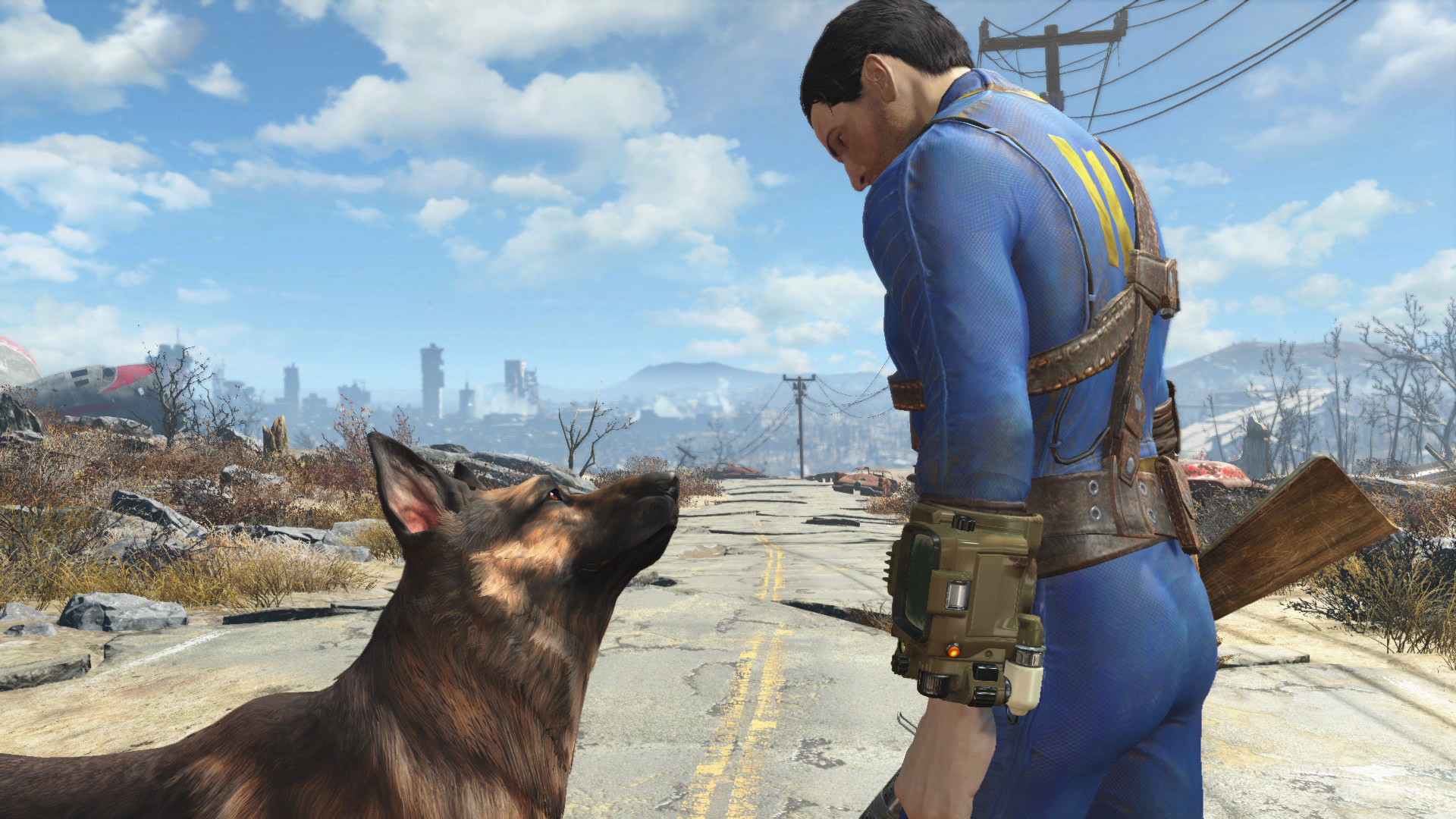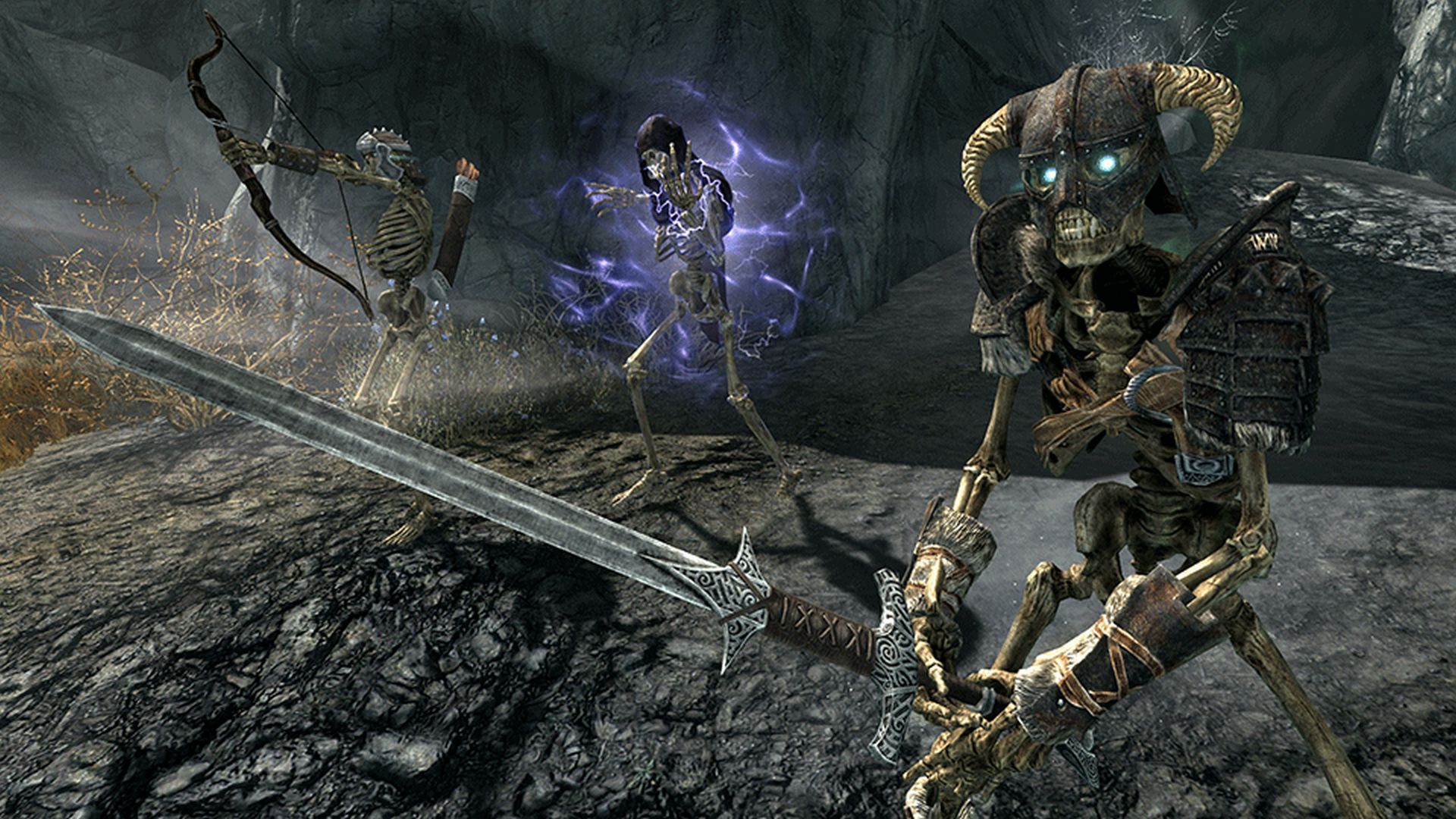Bethesda Needs to Reduce the Gaps Between New Fallout and Elder Scrolls Releases
It’s always hard waiting for a new game in a beloved franchise, especially at a time where development cycles can often last as long as 5-6 years, if not even more. That pain, in fact, is perhaps more keenly felt by fans of Bethesda Game Studios franchises than the fanbases of most other major active franchises. In the here and now, for instance, in the immediate afterglow of Amazon Prime’s excellent Fallout series, with fans hungry for more, people are going back to older instalments in the series in groves- but if what you want is a new instalment in the series to dive right into? Well, you’re out of luck. The same is true of The Elder Scrolls, a series that isn’t going to see its next game for several years yet.
A 5-6 year wait between instalments would feel like a long time for any franchise, but where these two are concerned, the wait is far, far longer. Fallout, for instance, has already gone nearly a decade without a new mainline release, with Fallout 4 having launched nine years ago, in 2015. 2018 brought us Fallout 76, which was not only a spinoff, but at launch, also an unmitigated disaster, and though subsequent years have seen the multiplayer game turn its fortunes around in remarkable fashion, it doesn’t quite scratch the same itch as a new numbered entry in the series.
[embedded content]
And when you think about it, we’re probably not even at the halfway point on the road to Fallout 5. Last year, The Elder Scrolls 6 finally entered full production, but only after the fantasy RPG is out the door will Bethesda turn its attention to its post-apocalyptic franchise. Given how long it takes BGS to develop its massive games, that means we’re probably still around 10-12 years away from Fallout 5’s launch. That’s anywhere between 2034 and 2036- so stupidly far away in the future that it feels ridiculous to even think about. For all practical purposes, Fallout 5 is not a thing that exists, and won’t be for a long, long time yet.
The fact that demand for more Fallout has grown rapidly in the wake of the Amazon series has only served to shine a brighter light on this peculiar dilemma. Yes, Fallout 4’s Next-Gen Update will be arriving for PS5 and Xbox Series X/S imminently, and that’s likely going to bring another boost in sales for the game (to add to the already impressive resurgence it is currently enjoying), but a free update feels like a wet band-aid (if that) in the wider context.
With The Elder Scrolls, even though there’s no TV show flaring up renewed interest in the franchise, the situation is no less frustrating. The Elder Scrolls Online has served sort of the same purpose that Fallout 76 has for its franchise, but the wait for a new mainline instalment in the series has been torturously long. Later this year, it will have been 13 years since the launch of Skyrim, and with The Elder Scrolls 6 only just having entered full production last year, it probably won’t come out until 2028 or thereabouts.
Skyrim will be 17 years old at that point. 17 years. Ordinarily, if a sequel was coming out 15 years after its predecessor, it’d be safe to assume that the franchise was trying to come back from a critical or commercial failure. But this is The Elder Scrolls, and Skyrim was Skyrim– widely considered to be one of the greatest games ever made, with over 60 million copies sold worldwide. It’s no surprise that having to wait more than a decade and a half for its sequel has been as frustrating as it has been for fans of the franchise.
So what exactly is the solution here? After all, it’s no secret that game development, already a startlingly complex and intensive process, has only continued to grow that much more complicated at a rapid rate. Development cycles tend to last years now, and for games that are as vast and multifaceted as Bethesda Game Studios’ RPGs are, even longer. So is the answer for BGS to expand to the point where it can concurrently have multiple major large-scale projects in production at once? That, of course, is far easier said than done for a multitude of reasons, especially in an industry as volatile as game dev- from recruiting the right people (and enough people) to having a structure in place that can efficiently manage two simultaneous projects on that scale.
There are other ways that Bethesda can find to try and reduce the gap between new Fallout and Elder Scrolls releases. Remakes and remasters, for instance, would be an easy victory that, frankly, we’d be surprised if Bethesda didn’t pounce at. In particular, there’d be no shortage of people lining up for modernized of older releases like Fallout 3 or The Elder Scrolls 4: Oblivion. Interestingly enough, leaks have claimed that remasters of those two games are indeed in development– whether that’s accurate remains to be seen, but if Fallot 3 and Oblivion remasters were to come out, if handled well, they’d doubtless do very well for Bethesda.
Another solution, one that’s perhaps likely to be even more popular among fans than remasters or remakes, is spinoffs and smaller instalments developed by external partners. Bethesda Game Studios clearly has its hands full with the things it’s got on its plate as it is, so seeing as there simply isn’t any room in the schedule to fit in, say, a smaller-scale Fallout game in the next few years, why not look to a fellow Microsoft-owned first-party developer to step in instead? After all, there’s no shortage of world-class RPG specialist teams under the Microsoft umbrella at this point, and Fallout in particular is no stranger to having its reins transferred from one team to another. If we were to get a new single-player Fallout spinoff in the next few years, the decade-long wait for Fallout 5 would become a lot less unbearable.
One way or another, what’s clear is that Bethesda and Microsoft both need to figure out how to do more with both of these franchises. Fallout and The Elder Scrolls are both in their prime, both enjoy widespread critical acclaim and mainstream appeal, and both consistently outsell even some of the biggest games in the industry. More importantly, there’s insatiable demand for new games in both franchises, and though it’s certainly understandable why it’s taking as long as it is for Bethesda to get to new instalments, it’s also been baffling to see little to no attempts seemingly being made so far to try and find other solutions. The iron is red hot for both Fallout and Elder Scrolls, and it’s begging to be hit.
It’s either that, or we resign ourselves to the fact that new Fallout and The Elder Scrolls instalments likely won’t be releasing until their predecessors are a decade and a half old, if not even older. For franchises as massive, as successful, and as beloved as these two, that seems like an absolute waste. Hopefully, Bethesda and Microsoft will see things that way, too.
Note: The views expressed in this article are those of the author and do not necessarily represent the views of, and should not be attributed to, GamingBolt as an organization.




Comments are closed.